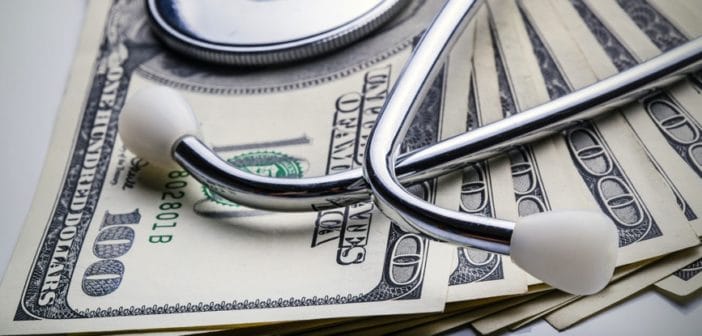 I won’t pretend to understand the deadlines, demands or pressures of being a celebrity of any level, whether it’s your garden variety A+ Tom Cruise or a self-admitted “B- celeb” like podcaster Adam Carolla. I have to assume with celebrities, it’s all just a game of icebergs: most of their struggles and challenges rest beneath the surface, with the public only seeing the 3% their publicists want us to see. However, Prince’s untimely death in April offers a rare glimpse at those struggles and, according to a Fox News Health article, it “may offer evidence for how the special treatment often afforded the rich and famous can result in worse health care than ordinary Americans receive.” In fact, celebrities like Prince are victims of what is commonly known as “VIP Syndrome”—a perfect storm of wealth, enabling, questionable medical treatment and, ultimately, death.
I won’t pretend to understand the deadlines, demands or pressures of being a celebrity of any level, whether it’s your garden variety A+ Tom Cruise or a self-admitted “B- celeb” like podcaster Adam Carolla. I have to assume with celebrities, it’s all just a game of icebergs: most of their struggles and challenges rest beneath the surface, with the public only seeing the 3% their publicists want us to see. However, Prince’s untimely death in April offers a rare glimpse at those struggles and, according to a Fox News Health article, it “may offer evidence for how the special treatment often afforded the rich and famous can result in worse health care than ordinary Americans receive.” In fact, celebrities like Prince are victims of what is commonly known as “VIP Syndrome”—a perfect storm of wealth, enabling, questionable medical treatment and, ultimately, death.
Losing Sight
While Prince’s fentanyl overdose is still fresh in everyone’s mind, VIP Syndrome isn’t new. First recognized in a clinical study from 1964, VIP Syndrome continues to be a very real issue for wealthy individuals desperately needing treatment. The 1964 study’s author, Dr. Walter Weintraub, observed that “when considering patients with enormous prestige, it is easy to see how therapeutic programs requiring close supervision may be difficult to implement.” In other words, the medical community isn’t immune to getting star-struck. Weintraub’s study explored how VIPs essentially get in their own way when it comes to receiving the treatment they need. In many cases, celebrities manage to throw physicians’ good judgment just like the Bermuda Triangle confuses compasses. Blinded by the harsh light of stardom, docs don’t just lose their perspective—they can lose their sense of right and wrong.
“Stars may reject medical advice or demand ineffective or harmful treatments,” the Fox News Health piece observed. “Doctors may order unnecessary tests or not enough tests. Hospital administrators may meddle in decisions if the patient is a potential financial donor.” In Prince’s case, test results and drugs were actually hand-delivered to the musician’s doorstep. VIP Syndrome isn’t just a working theory in what may have killed Prince. It’s an all-too-familiar pattern of behavior that will continue to underscore many celebrity deaths.
Cautionary Tales
Before Prince’s overdose, the deaths of Joan Rivers and Michael Jackson made headlines for just how complicit their physicians were. Jackson’s personal doctor, Conrad Murray, served time in prison after an involuntary manslaughter conviction. As the Fox News story pointed out, “Jackson had requested a surgical anesthetic, propofol, to help him sleep, calling it his ‘milk.’” Propofol is a strong anesthetic that works “like a switch” but when given in high doses, can be fatal. Murray, prosecutors claimed, went against his better judgment as a physician and simply “didn’t notice when Jackson stopped breathing.” Even more disturbing is Joan Rivers, whose personal doctor took a selfie with her while Rivers was under anesthesia. The word “disrespect” doesn’t seem to do the situation justice, but it’s nevertheless a disturbing sign of how uncomfortably close physicians can get to their celebrity patients—both figuratively and literally. As a result, “the comedian’s family accepted an undisclosed amount to settle the complaint in her 2014 death following a routine endoscopy [where doctors]failed to act as Rivers’ vital signs deteriorated.”
Fox News Health also argues that First Lady Eleanor Roosevelt “may have been misdiagnosed because of VIP Syndrome,” too, citing evidence that while she died of tuberculosis, “[it]could have been caught earlier if she’d had a bone marrow biopsy in time.” The first lady was treated incorrectly and given drugs that actually weakened her body. “Lots of doctors were involved, and no one was specifically in charge. She was an opinionated patient, and that it made more challenging to take care of her,” an expert said of Roosevelt, echoing sentiments that are true in many celebrity death cases.
White Gloves, Red Blankets
Having extraordinary means doesn’t guarantee extraordinary results for everyone. An opinion piece in the New York Times argued that VIP treatment (or “elite service”) actually does more harm than good, criticizing luxury suites, sweeping views and red blankets. The op-ed argued that “regular people lose when hospitals dedicate their best spaces to elite units” and deliver “faster treatment to VIPs in their emergency rooms.” While some people see the harmless upshot of luxurious amenities for celebs—good experiences leading to higher donations—the op-ed’s author (also a physician) is quick to say it’s simply not worth it: “Many doctors worry that VIPs receive worse care. I’ve heard countless stories of elite patients who underwent unnecessary tests or were treated with medications unlikely to be helpful because the physician felt pressured to appease them.”
Regardless, VIP treatment isn’t going away anytime soon. A feature in the Times detailed all the ways hospitals continue to court the rich—personal chefs, butlers, added privacy, extra security, panoramic views—and claimed there’s an unofficial “amenities race” going on between hospitals. Making matters worse, “leading US hospitals are seeing an influx of visiting royalty, politicians, sports stars, business people and celebrities for whom money is no object, when getting medical treatment,” as one site noted. It challenges everyone involved to constantly fight the impulse to treat their VIP patients differently. “There is a balance between extra revenue and allowing patients to dictate the rules.”
When it comes to VIPs, many hospitals should take a page from the Cleveland Clinic’s playbook. The Clinic has actually outlined a series of protocols to guard against VIP Syndrome that includes “accepting gifts, bending the rules for such patients or bringing in department heads to treat them rather than a lower-ranking but more relevant doctor.” Regardless, many VIPs who use enablers, hangers-on and yes-people to insulate themselves from the world also, sadly, insulate themselves from getting the treatment they actually need. It’s a problem that (if unaddressed) will continue to claim the lives of celebrities who are suffering in plain sight, as well as compromise the medical community for decades to come.
Sponsored DISCLAIMER: This is a paid advertisement for California Behavioral Health, LLC, a CA licensed substance abuse treatment provider and not a service provided by The Fix. Calls to this number are answered by CBH, free and without obligation to the consumer. No one who answers the call receives a fee based upon the consumer’s choice to enter treatment. For additional info on other treatment providers and options visit www.samhsa.gov.




